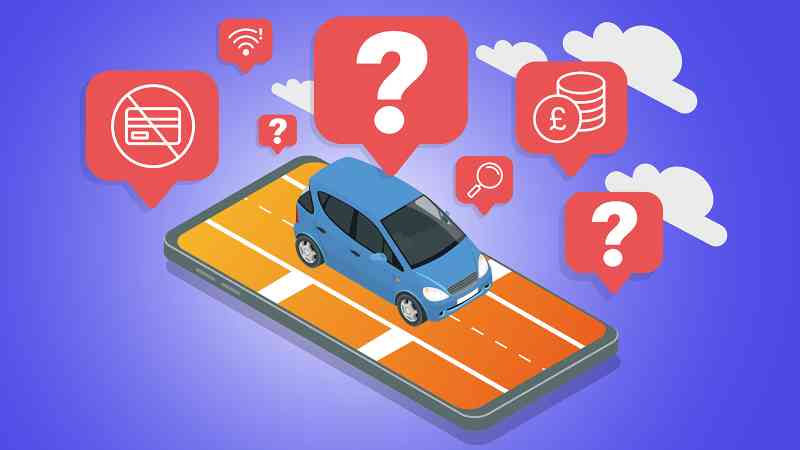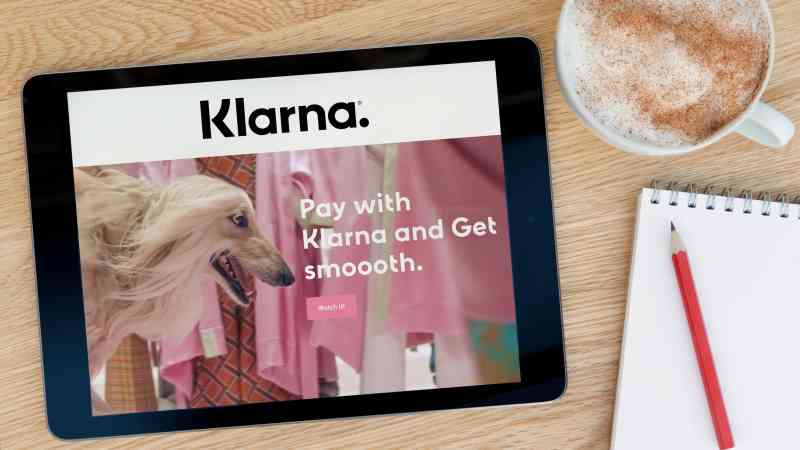Taken for a ride: how parking apps make millions from drivers
Deborah Embley and her husband, John Deiss, were fined £240 because they did not download a parking app quickly enough. The couple had been on a day out with friends in the seaside town of Southwold in Suffolk, where the mobile phone signal was so poor they could not download the app they needed within the 15-minute free parking window.
“It is not our fault that the app took so long to download and register. I worry about older people or those without a mobile phone who struggle to pay, if they can pay at all,” said Embley, 60, a retired accountant.
There are now about thirty different apps that drivers can use to pay for parking on land owned by private firms and local authorities, with rates varying hugely, from about 70p an hour to almost £14.

Drivers are paying almost £5.5 million a day — £1.93 billion a year — to park on public roads and in council bays, according to government figures. This is up from £1.66 billion in 2017-18 and does not include the revenues made by private parking firms.
On top of the basic parking charges, the apps we are all forced to download now come with many different layers of fees; from green levies, “convenience” and “service” charges, to parking insurance and costs for getting a text message to confirm your parking.
Some firms make extra revenue from commercial tie-ins, with one, bizarrely, advertising counselling services to users. Profits at the biggest parking app firms have soared, with bosses making millions in pay and dividends.
How the fees stack up
There is normally a base cost for parking, set by the car park owner or local authority. This is the rate you pay using cash or card, but if you pay via an app there are often other charges. These depend on the commercial agreements the apps have with the car park owners.
One of the cheapest places to park is Bradford city centre, where rates can be about 70p an hour using the RingGo app. The most expensive areas are in London, where you may pay more than £13 an hour for the most polluting vehicles.
This is because some local authorities apply fuel surcharges via parking apps to encourage greener vehicles. This could add 40 per cent to your bill if you have a more polluting vehicle.
For example, parking an old Land Rover that emits more than 256 grams of carbon dioxide per kilometre in the London borough of Westminster for one hour would have a base cost of £6.60 if you paid by cash. If you used the RingGo app the cost would be £9.24. There may be a 50 per cent further surcharge on some pre-2015 diesel vehicles, taking the hourly total to £13.86 — more than double the base rate.
The apps know what emissions your car has because you have to enter your registration number and the app is linked with the DVLA database.
Then there are the extra charges. Some apps have a “convenience fee” of 20p to cover the cost of the app. Others may apply a service or transaction fee of up to £2.49, covering essentially the same thing. Local authorities used to absorb some of these costs but some now allow app firms to pass them on.
Many apps also offer a mobile phone text message service to alert you that your parking is coming to an end. This typically costs 10p to 20p. Companies such as YourParkingSpace offer a text message confirmation, reminder, and expiry alert, for 20p each, making the total cost for all three 60p.
Rather than paying for a period of parking in advance, some apps require you to cancel your session when you leave, similar to the way you pay for your parking at a machine when you leave some car parks. But it is easy to forget to do this on an app, so drivers risk running up a hefty charge.
RingGo, the biggest firm with 19 million users, said its “start/stop” parking feature was in operation in Northern Ireland, parts of Salford, Greater Manchester, the Royal Borough of Windsor and Maidenhead, Wandsworth, East Devon and Torbay. It said that all start/stop locations had a maximum stay. In West Street car park in Axminster, Devon, for example, the most you will be charged is £3 for 24 hours, even if you forget to cancel your session.
• Fake parking QR codes trick drivers into paying conmen
Helen Thompson overpaid for her parking because she had not opted into text reminders. Thompson, 47, used the RingGo app to park in Wandsworth, in southwest London. She stayed about an hour, which should have cost £3.40, but after forgetting to end her session until later ended up with a total parking bill of £7.24.
“I had already paid a convenience fee of 18p and for text confirmations which cost 50p, surely that should also include a reminder to end the parking session?” she said. “When you have the kids with you and you are rushing about it is too easy to forget. I would much prefer to pay with a card or cash.”
RingGo said that it does not pocket any of the fees from the parking charges applied via its app but charges councils a transaction fee, which they can choose to pass on to drivers as a “convenience fee”. RingGo does pocket the fee for the text message reminders.
YourParkingSpace, another app, said its “service fee” of up to £2.49 helped to cover “the costs of running the platform and providing related services”. It said its text message confirmation, reminder and expiry alert was an optional extra and was not hidden.
JustPark said its transaction fees on local authority contracts ranged from 5p to 20p. A receipt via text message costs 20p, adding insurance to your parking session is 29p an hour and the text message reminder adds another 20p.
Flogging insurance
Those apps, such as JustPark, that offer insurance can add more than 50 per cent to your costs.
The PayByPhone app now has an “add insurance” option to cover you if your vehicle is broken into while it is parked. A 24-hour stay in Bury St Edmunds, Suffolk, could cost you £8.80 without insurance but £13.64 with cover.
However, exclusions could render this insurance worthless. You are not covered for a damaged windscreen or internal and external fittings. A police report must also demonstrate that there was forced entry into the vehicle.
Your car or home insurance policy may already cover you, so always check because you will not be able to claim on two policies at the same time.
Jonny Combe, the chief executive of PayByPhone, said: “We emphasise that this insurance coverage is entirely optional. They can, of course, use their existing car or home insurance policies to file a claim, if their policies provide cover. There is no excess with PayByPhone Protect and it is ideal for motorists who have built up a healthy no-claims bonus on their motor cover but do not want to risk losing it.”
PayByPhone users are also being shown ads for other services, including counselling sessions. A message on the payment page reads “Begin your wellness journey today”. It offers therapy for stress and depression by connecting customers to a licensed counsellor online.
“We have started a pilot programme to provide promotional offers on products and services after a parking session has been purchased,” Combe said. “These offers are totally optional and range from groceries and meal deals to mental health counselling.”
How parking apps took over
Parking apps began more than two decades ago in Europe, with start-ups such as Vipnet in Zagreb, Croatia. The first UK app service was introduced in about 2009 by RingGo.
Anthony Eskinazi, the chief executive of JustPark, said that traditional pay and display machines could be all but extinct within a decade. Last year he said he could not envisage any local authorities buying traditional meters “past 2025”.
There are no official figures for the number of parking spaces that require an app service, but in August 2023, in a submission to MPs, RingGo said there were about 250 million cashless parking transactions across the UK each year.
There are plans to introduce a national parking platform this autumn, which would allow drivers access to all parking firms through a single app, but no date has been set.
• Cheaper parking at hospitals after HMRC loses battle over VAT
In a survey of 1,900 drivers last year by the motoring group RAC, some 19 per cent said their local authority had either scrapped cash or debit card parking payment machines or was consulting on doing it, forcing drivers to use mobile phones to pay instead. In London 44 per cent of those questioned said this was the case.
The parking apps have revenue sharing agreements with cash-strapped local authorities. The income councils raked in from parking surged to almost £962.3 million in the 2022-23 financial year, up from £317.6 million the year before, according to analysis by the AA.
Hourly daytime parking rates have gone up 11 per cent in two years as councils try to balance their books, according to the insurer Churchill.
Jack Cousens from the AA said: “With local budgets stretched, drivers are the cash cow when it comes to revenue raising. More councils are investing in apps in an effort to ease the management of their car parks.”
Parking apps are not regulated, but many are members of an accredited trade association, such as the British Parking Association or the International Parking Community. They must also adhere to a code of practice to get access to DVLA data about drivers and vehicles so that they can levy fines.
The parking ombudsman, Parking on Private Land Appeals, said it had 84,474 complaints made to it from drivers in 2022, up 53 per cent from the year before.
The firms behind the apps
RingGo operates in 17,000 locations and has local authority contracts in London, Leeds and Nottingham.
At the heart of RingGo is Peter O’Driscoll, the managing director since 2009, who has spearheaded the company’s extraordinary growth. He was head of sales at National Car Parks Limited, one of Britain’s largest private car park businesses, where he developed cashless parking solutions for fleet cars.
O’Driscoll has described RingGo as the “Airbnb of parking” because it doesn’t own any assets, but allows landowners and local authorities to take payments for use of their space.
RingGo said: “Peter’s involvement in parking began 20 years ago when cash was the only way to pay and sometimes people didn’t have the right change — the industry was looking to modernise. At RingGo he spearheaded an automated payment technology, which evolved into him developing the UK’s first parking app in late 2009.”
RingGo’s revenues hit £25.8 million in 2022, according to its latest accounts, up from £17.8 million in 2021. Profits reached £5.1 million, up from a £11,282 loss in 2021 after Covid lockdowns.
PayByPhone has 50 million customers in America and Europe, and is the UK’s second biggest parking app. Its UK accounts show a revenue of £6.2 million in 2022, up from £4.2 million the year before, while operating profits increased to £277,635 from £184,007.
The JustPark app company had revenues of £12 million in 2023 and operating (before tax) profits of £87,000.
YourParkingSpace is too small to file detailed accounts.




Post Comment